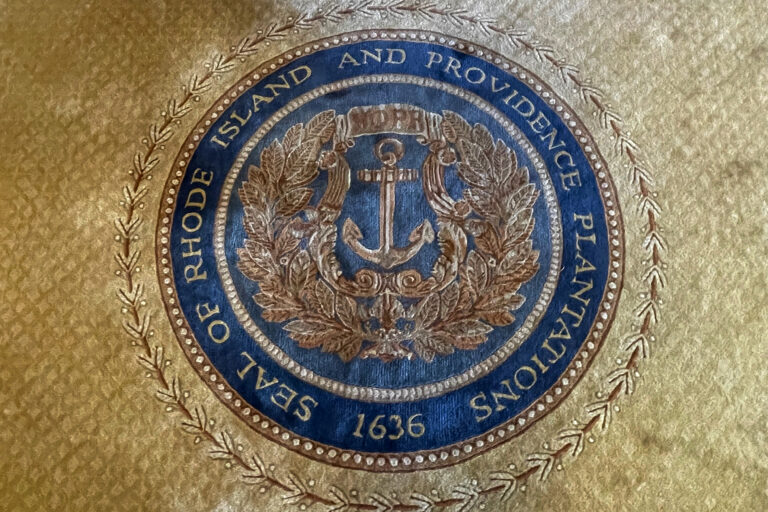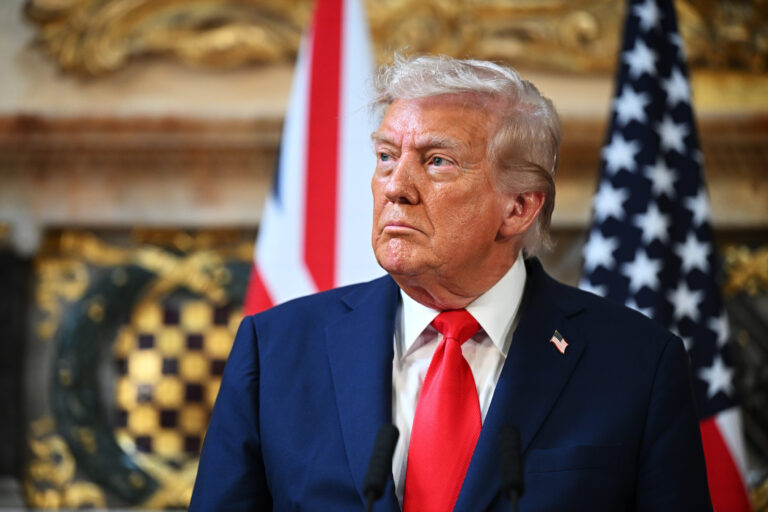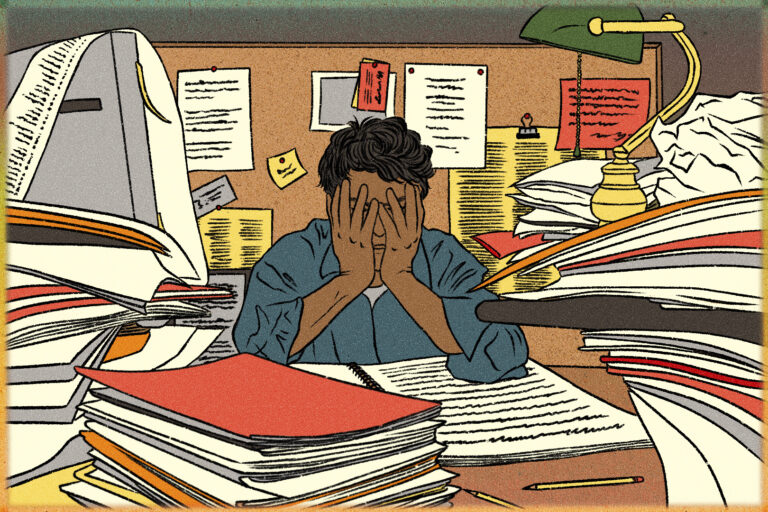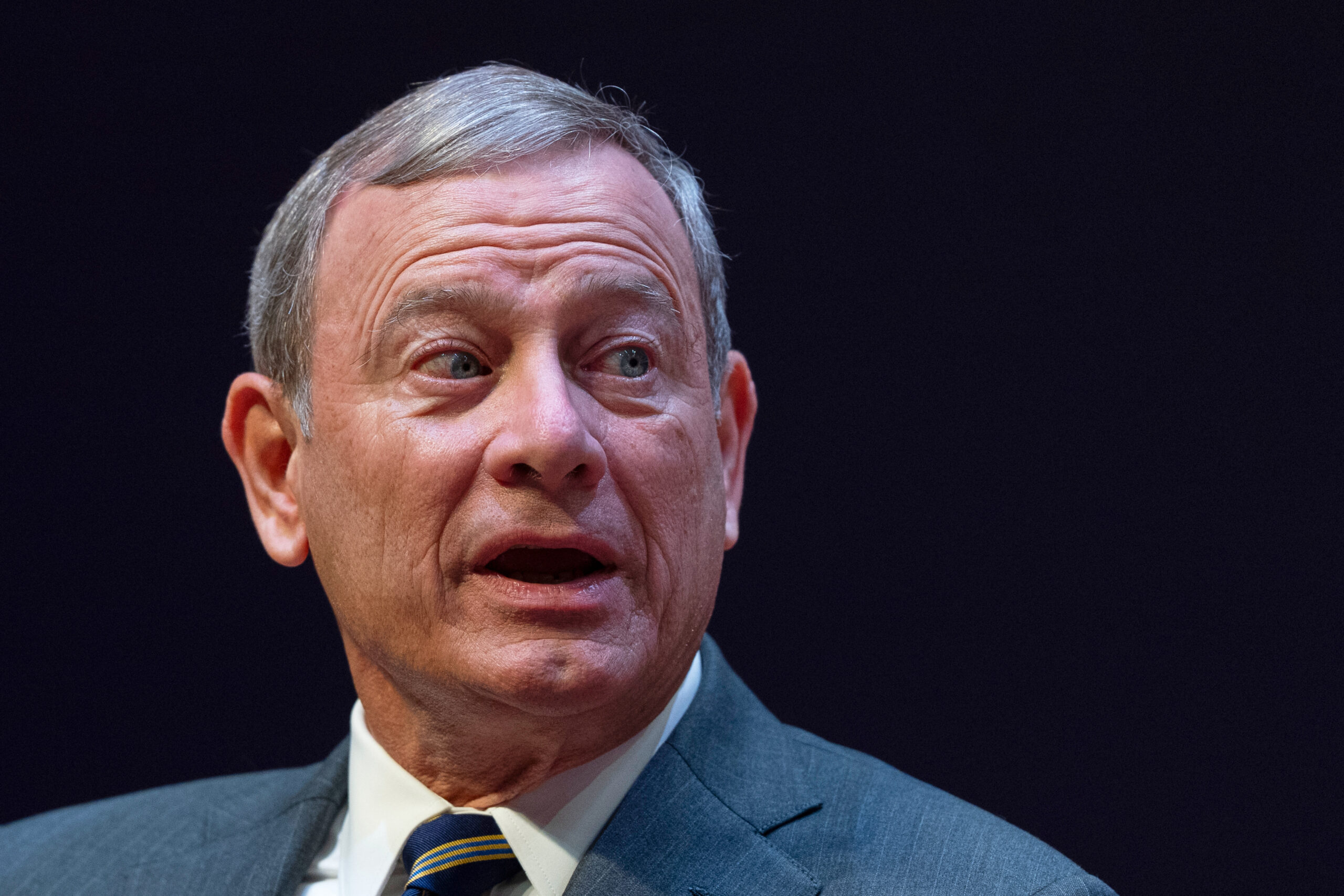
Chief Justice John Roberts has said that one area where the rule of law is “most endangered is with young people.”
Asked how new lawyers can help strengthen the rule of law during a talk at Georgetown Law, in Washington, D.C., on Monday, Roberts pointed to the importance of civic education to increase understanding of how the courts and wider United States work.
“I think you’re talking about strengthening the rule of law,” he said. “One area where it’s most endangered is with young people. I mean they’re focused on high school and eighth grade and things like that.
“How many people have really no understanding of what the role of courts are? What the different branches have to do? Really, even the notion of what law is and what a constitution is?”
Why It Matters
Roberts’ warning highlights concerns over the future resilience of American democracy and the effective functioning of its justice system.
The Trump administration has been accused of refusing to follow orders from federal judges and the Supreme Court to allow “due process” in immigration cases before deporting people. The White House denies the accusation.
President Donald Trump has also criticized judges who ruled against him and called for their impeachment. Roberts has criticized such rhetoric, without citing the president directly. Earlier this month a federal court struck down a Trump executive order that targeted a law firm that represents many of his rivals.
Roberts was speaking in an educational context and did not address the balance-of-power dynamic directly.
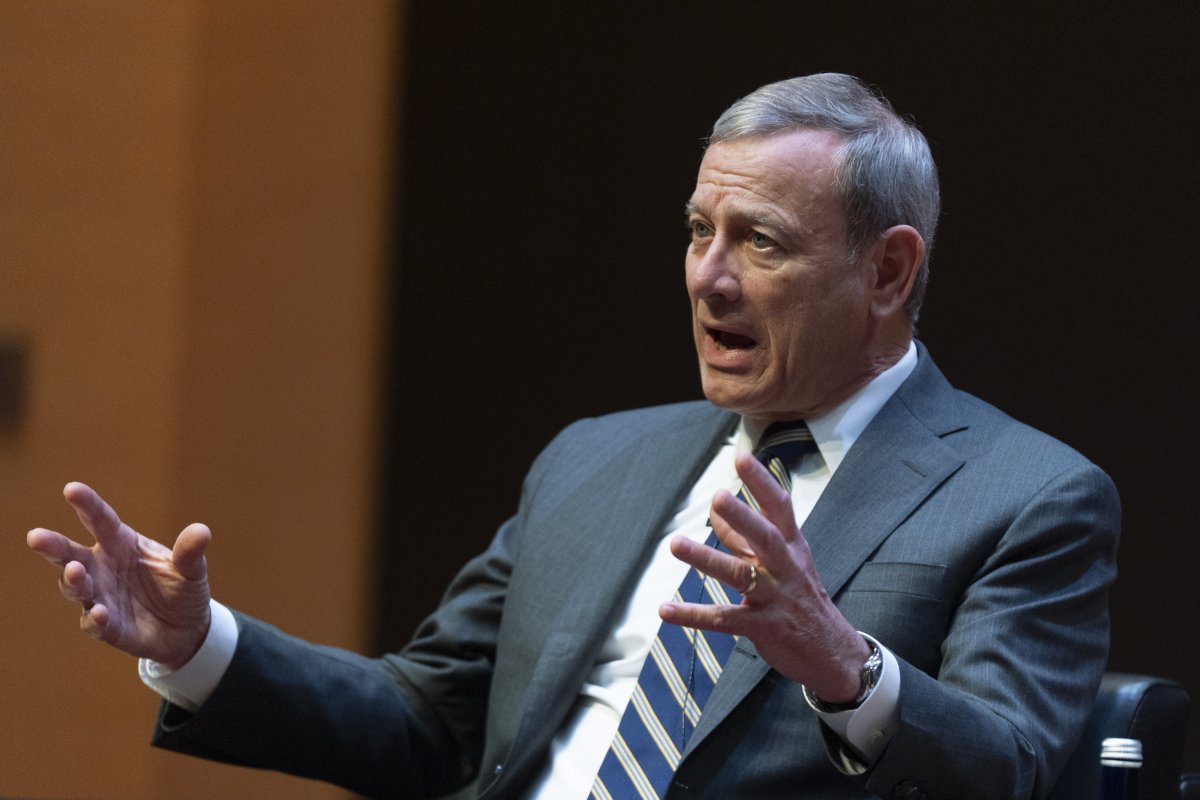
Manuel Balce Ceneta/AP Photo
What To Know
Roberts was asked by Georgetown Law Dean Dean William M. Treanor on behalf of a student: “What steps can our newly admitted lawyers take to strengthen the rule of law?”
The Chief Justice responded that young people pose a possible danger to the rule of law because they are “focused on high school, and eight grades and things like that” and don’t have an understanding of the role courts play, or a notion of how the law functions.
Roberts lamented how civics education is often the first to go when schools make spending cuts. “We’re developing a situation where a whole group of young people is growing up having no real sense about how our system of justice works.”
Roberts highlighted the work by educational nonprofit iCivics, founded by former Justice Justice O’Connor and championed by Roberts’ colleague on the Supreme Court bench Justice Sonia Sotomayor, to nurture understanding through teaching in schools.
In 2024, the largest percentage of AP US Government students achieved a 5 on the test—the highest score—since records began. That year, 24.3 percent of test takers obtained the top score—nearly double the 12.8 percent who achieved it in 2023. The number of students taking the test increased from about 330,000 to 350,000.
Asked about how he handles criticism of the Supreme Court, Roberts said it has often been helpful but stressed it should focus on rulings rather than “trashing the justices,” adding, “the harshest critics are usually colleagues.”
Earlier this year, Trump called for the impeachment of judges who’ve ruled against him.
Republican appointee Roberts, in a rare statement in March, said: “Impeachment is not an appropriate response to disagreement concerning a judicial decision. The normal appellate review process exists for that purpose.”
Asked how justices with differing perspectives work together, Roberts said: “These things that are difficult you find a way to to get along, I mean it’s it’s a long job if you’re sort of really at each other’s throats with bad feelings.
“I think we all realize that we’re kind of in it together,” he added.
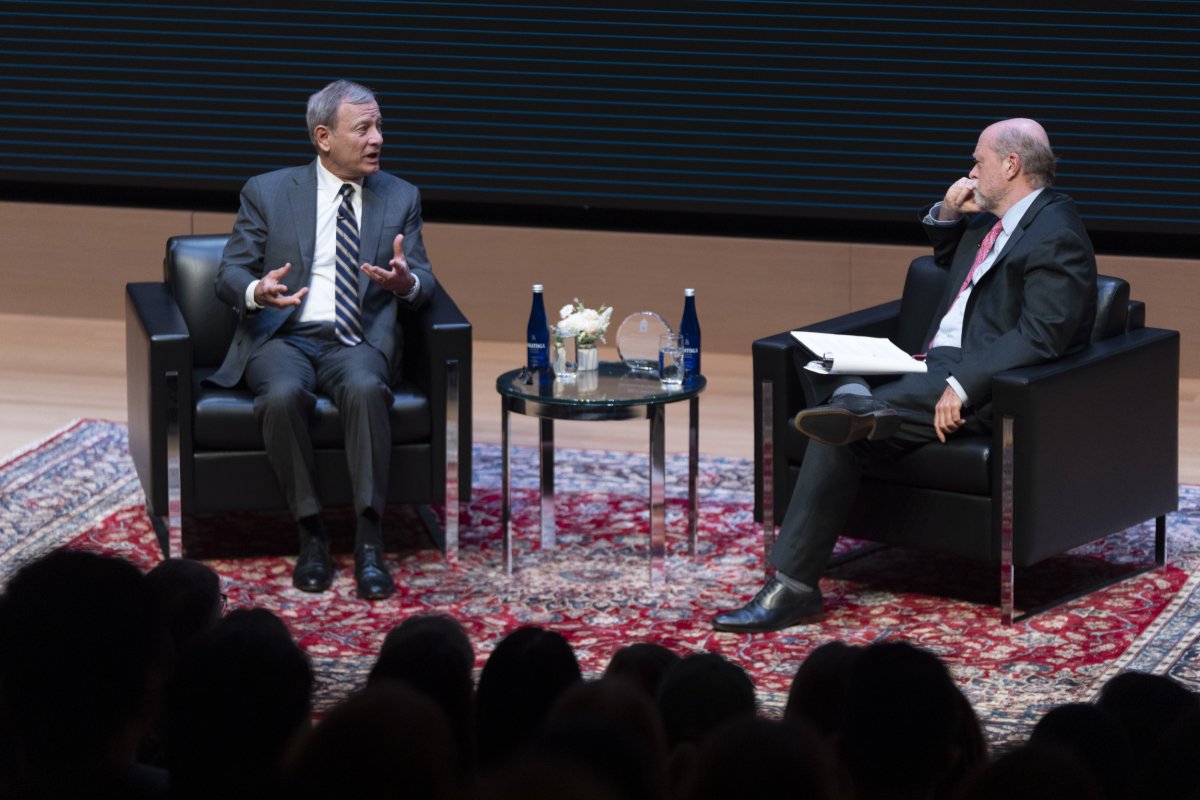
Manuel Balce Ceneta/AP Photo
In April. the nine Supreme Court justices ruled without dissent that the U.S. government must “facilitate” the return of Kilmar Abrego Garcia, who was wrongfully deported to El Salvador. The administration has argued it abided by offering a plane but the El Salvador government refused to allow Abrego Garcia to leave.
Earlier this month, U.S. District Judge Beryl Howell ruled that Trump’s executive order targeting law firm Perkins Coie, issued on March 6, violated constitutionally enshrined protections for free speech and due process and was thus unlawful.
Trump’s executive order had revoked federal clearance for Perkins Coie employees and instructed federal agencies to cancel contracts with the company. In his executive order Trump said Perkins Cole was being targeted over its work for the 2016 Hillary Clinton presidential campaign and its diversity hiring practices
What People Are Saying
Chief Justice John Roberts: “The notion that rule of law governs is the basic proposition,” Roberts said during an appearance at Georgetown Law. “Certainly as a matter of theory, but also as a matter of practice, we need to stop and reflect every now and then how rare that is, certainly rare throughout history, and rare in the world today.”


